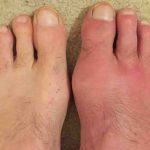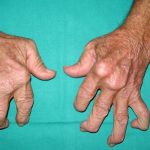Prognosis

During the course of treatment, it is common for younger patients suffering from HSP to have frequent relapses, but these relapses are mild compared to the initial occurrence. Sometimes, doctors will treatment a prolonged progression of relapses with steroids and azathioprine or MMF, which are both immunosuppressives.
As patients get older, the disease will stop re-occurring. While some adults have experienced HSP who had never had the disease in their youth, this is considered uncommon. As with types of inflammation, the symptoms and the rash might disappear without any leftover sign. Sometimes, scars might occur on the skin, bowel, or kidney. Since the scaring cannot be repaired, it is often associated with loss of function and even a cause of progressive kidney damage over the years.
Should this happen, your kidneys will need to be monitored by doctors and routinely tested for the presence of blood and protein in the urine. Should protein be leaking out of the kidneys at a high rate, you will be asked to start taking an ACE inhibitor, usually enalapril or ramapril or an ARB, such as irbesartan. Blood pressure lowering drugs can also be used to stem the flow of protein in the urine.
However, children rarely have to worry about these issues at the end of their treatment. By catching HSP in the early stages, any permanent damage can be avoided.
More from Things Health
-
Symptoms of Gout
Gout is a form of inflammatory arthritis characterized by recurrent attacks of a red, tender, hot, and swollen joint. Pain typically comes on rapidly in…
-
Symptoms Of Rheumatoid Arthritis
Rheumatoid arthritis is a chronic autoimmune illness, which accompanies irritation of the joints and apparent deformities. Maybe a virus, causes an attack on the synovium…
-
Mindfulness And Meditation
Meditation was found to have a favorable influence on the body, brain, and spirit. Successful direction of persistent pain, reduction in blood pressure level, and…
-
Symptoms Of Epilepsy
Epilepsy a neurological disorder marked by sudden recurrent episodes of sensory disturbance, loss of consciousness, or convulsions, associated with abnormal electrical activity in the brain.…
-
Symptoms Of An Ulcer
A peptic ulcer is an open sore in the top digestion tract. Both primary kinds of peptic ulcers, a gastric ulcer, which forms in the…






